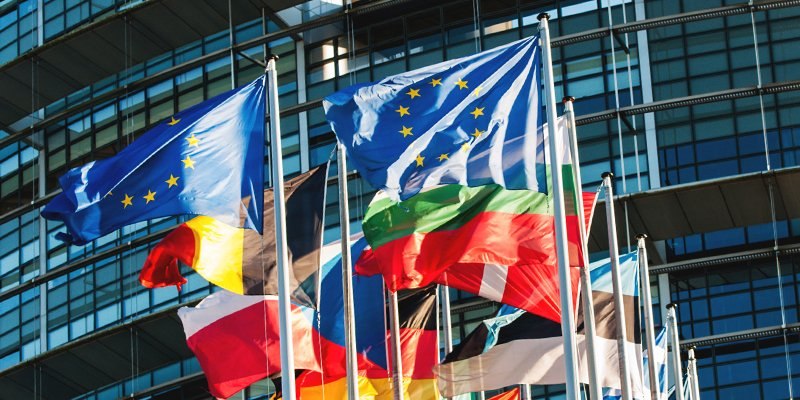New survey of nearly 13,000 people across 12 countries reveals some of the biggest challenges facing the EU and European nations
The European dream has never been as endangered as it is today. Britain’s vote to leave the EU, the immigration crisis and the rise of nationalism and populism across the continent have all put the Union’s future in doubt.
Now a new YouGov mega-survey of nearly 13,000 adults across 12 EU member states reveals the state of affairs on the continent. The results cast Europe in a fractious light. Pessimism abounds over the future of the EU, and there is a clear a lack of enthusiasm for – and trust in – national democracy and governments.
The survey is far too large to go into all of its findings, but we’ve picked out five of the most pertinent below.
1. Europe’s citizens are unlikely to allow Britain to have its cake and eat it on freedom of movement
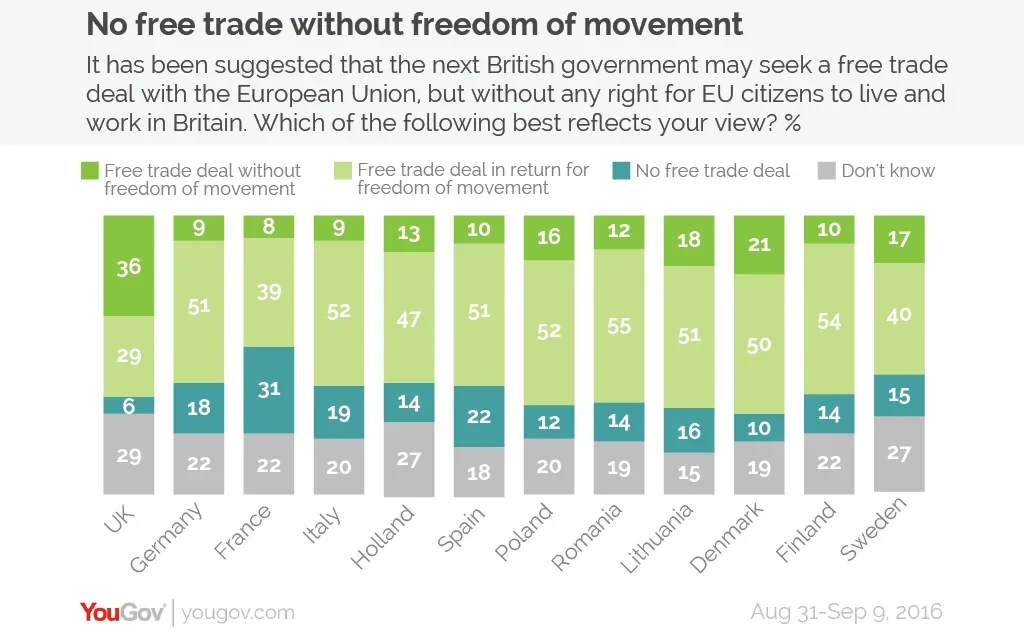
In Britain the most popular Brexit deal (at 36%) would be for a free trade agreement with the EU that didn’t include the automatic right of EU citizens to live and work in the UK.
However, the desire for Britain to be able to have its cake and eat it is, unsurprisingly, less strong on the continent.
Instead, the most popular Brexit deal for the publics of other EU nations is to do a free trade deal that includes freedom of movement (at between 39% and 55%).
In fact, in seven of the other EU 11 countries more people would prefer to give Britain no free trade deal than agree a free trade deal without freedom of movement.
The French seem particularly keen to impose a hard Brexit upon Britain – as many as 31% say that the EU should deny Britain a free trade deal.
2. Expectations are high that other countries will leave the EU in the next ten years
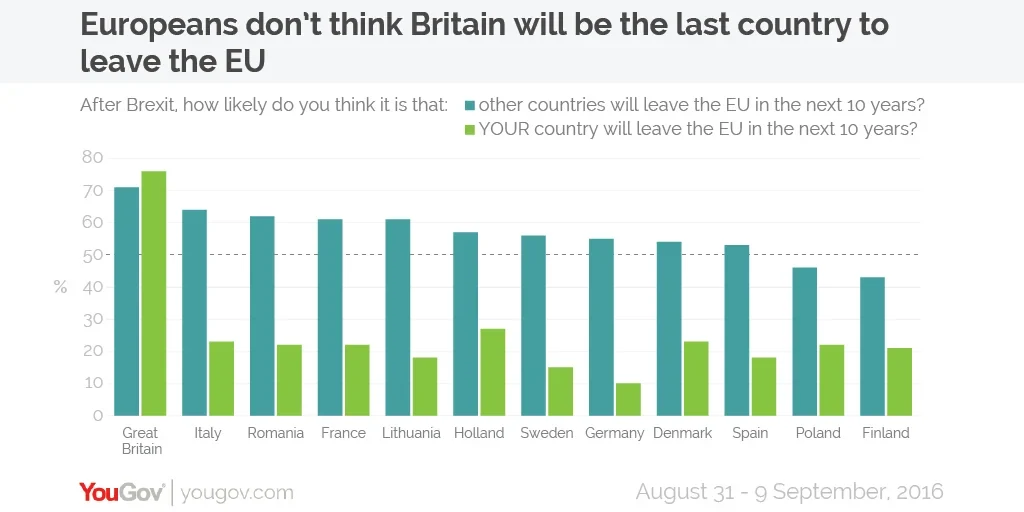
Britain is unlikely to be the only country to leaving the European Union in the next ten years, according to Europeans. Nonetheless, when pressed, none of the countries expect that their own country specifically will be one of the ones to leave.
3. No country is satisfied with the balance of power between the EU and member states
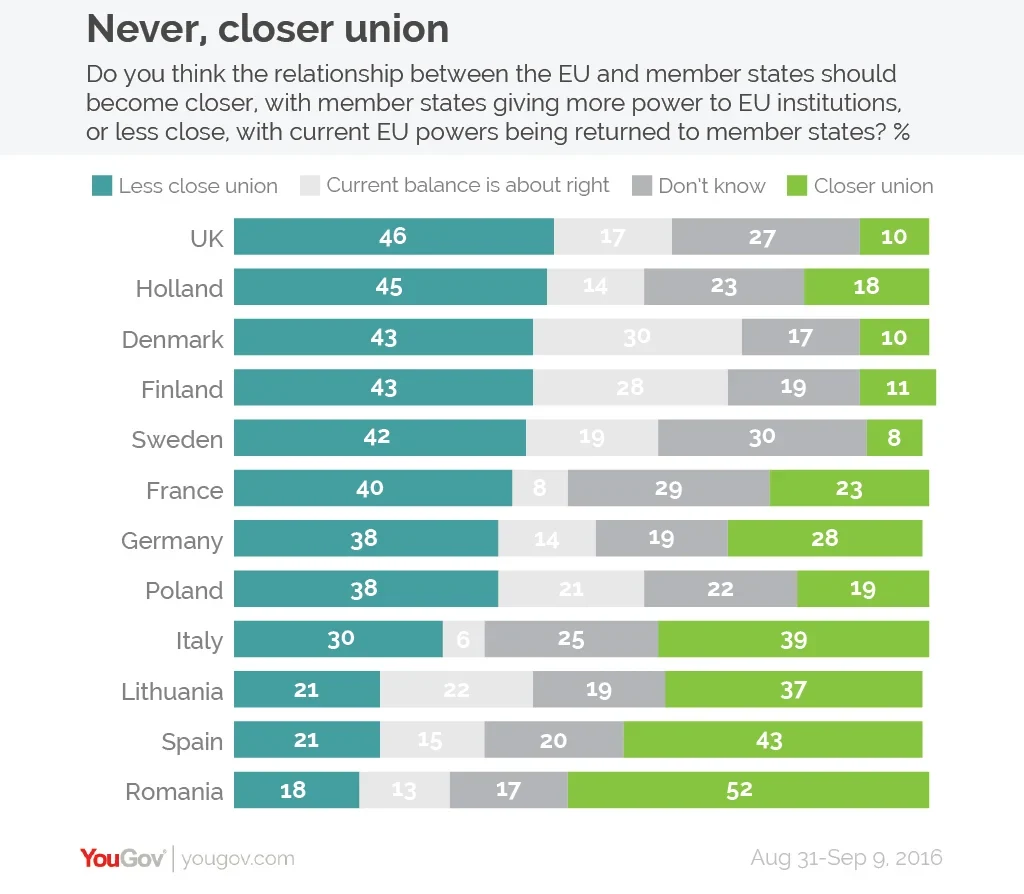
The era of an increasingly powerful European Union may be over, with the desire for EU powers to be returned to member states the most popular point of view in eight EU nations.
Unsurprisingly Britain tops this list with 46% of people wanting powers back from the EU, but the Netherlands and Nordic countries are not far behind, with 42-45% of people expressing the same view.
In no country was the belief that the current balance of powers is about right the most popular answer.
The desire for more national powers to be transferred to the EU was the most popular choice in four countries: Lithuania (37%), Italy (39%), Spain (43%) and Romania (52%). Which could have something to do with…
4. Satisfaction with national democracy is low across Europe
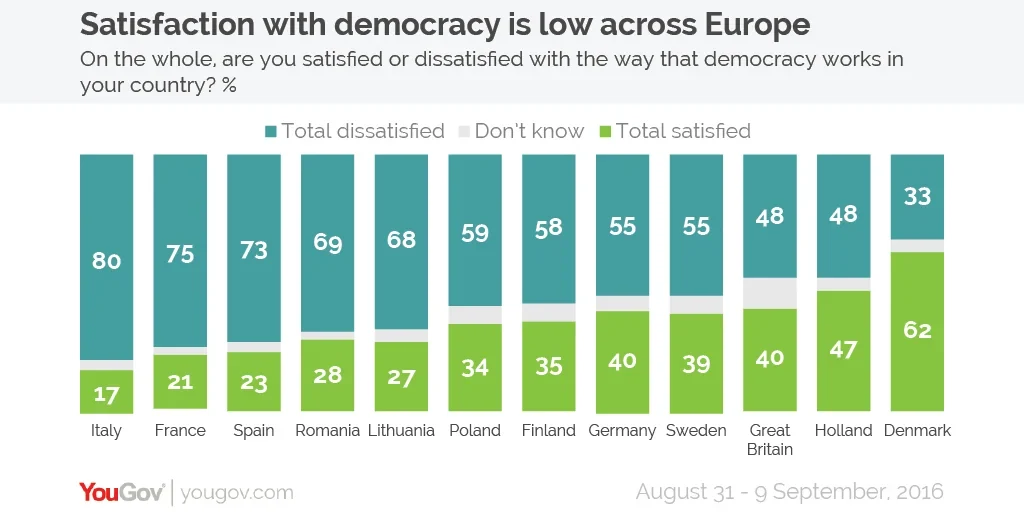
In only one country on our survey did more people say they were satisfied than dissatisfied with democracy: Denmark, where 62% of people say they are satisfied with democracy.
The top five countries where the most people are dissatisfied with democracy include the four countries hoping for greater European integration. The other country is France, where the 75% of people who are dissatisfied with democracy will give cause for fear to those worried about a far right victory at the forthcoming presidential elections.
5. Immigration is Europeans’ biggest concern
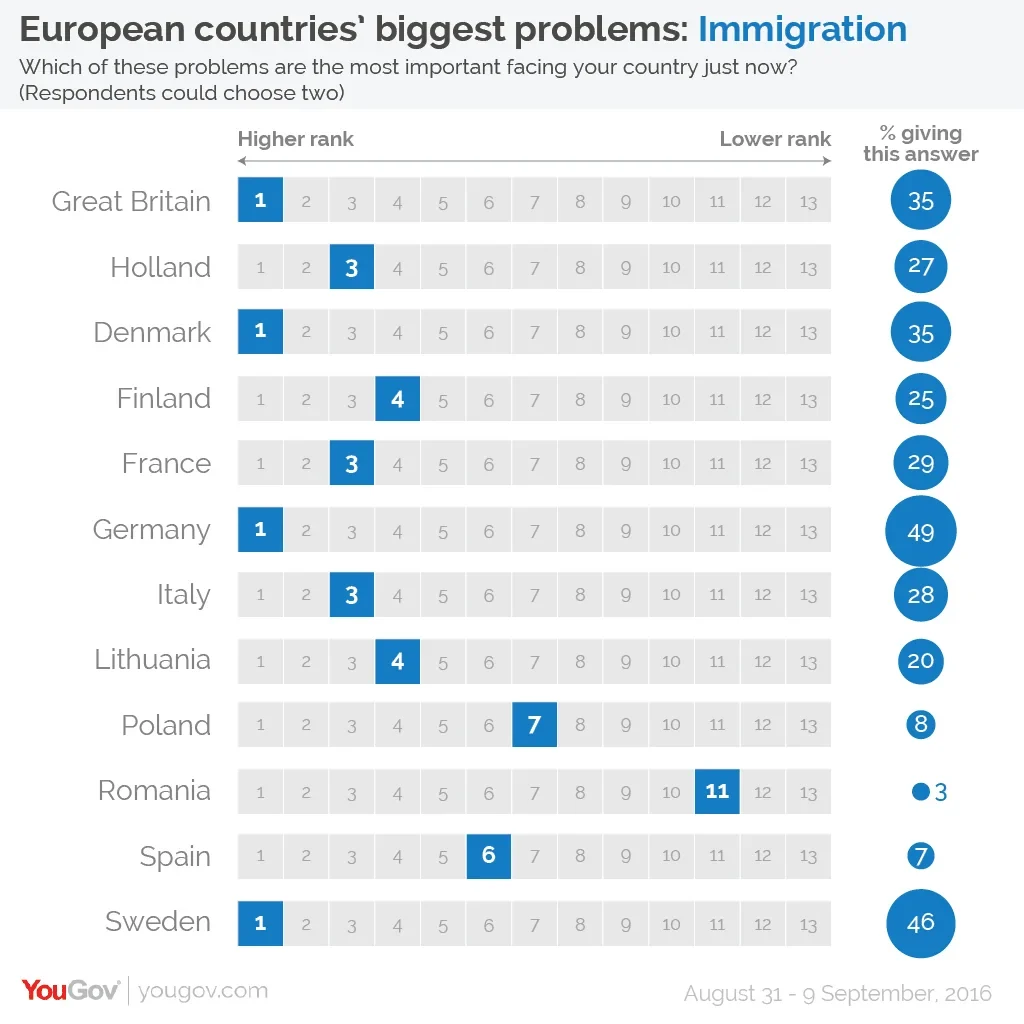
Immigration was given as the most important problem by the people of four countries: Britain, Denmark, Germany and Sweden. Of the 13 issues featured, it came in the top four issues for nine of the countries, with only Poland, Spain and Romania considering it to be a less important issue.
Three countries consider the state of the economy to be the most important issue, whilst education and inequality are the most important issue in two countries respectively. Poland considers the threat of international aggression (presumably from Russia) to be the most pressing issue facing their country.
Photo: iStockphoto
